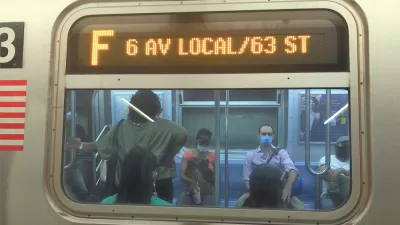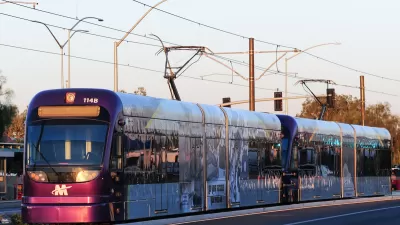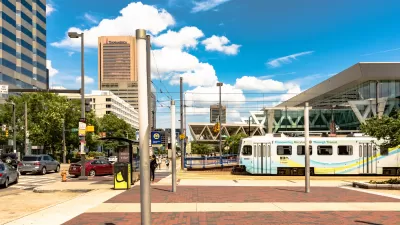The U.S. House of Representatives approved the Health and Economic Recovery Omnibus Emergency Solutions Act earlier this month. Transit advocates say the bill reinforces the car-centric status quo.

"The latest COVID-19 relief bill perpetuates some of the worst aspects of American transportation policy — and barely acknowledged how our transportation realities have shifted in the wake of the pandemic," according to Kea Wilson's assessment of the HEROES Act.
The Health and Economic Recovery Omnibus Emergency Solutions Act has been approved by Democrats in the House of Representatives, but Senate Republicans have been less than supportive, so the bill is likely to change substantially if it is approved.
Among the spending included in the proposed $3 trillion bill are $15 billion for the Federal Highway Administration to distribute to transportation departments across the country and $16 billion for public transit. "Advocates quickly questioned both numbers — the former because it was too large, and the latter because it was too small," according to Wilson.
As explained by Wilson, the American Association of State Highway Transportation Officials has been lobbying for funding to deal with anticipated shortages of transportation revenues as people stay home and drive less at unprecedented levels. Planetizen has covered news about expected gas tax revenue declines in Missouri and California.
On the transit side, the American Public Transportation Association earlier this month requested $23.8 billion in emergency funds to support public transit, so the HEROES Act falls far short.

Alabama: Trump Terminates Settlements for Black Communities Harmed By Raw Sewage
Trump deemed the landmark civil rights agreement “illegal DEI and environmental justice policy.”

Study: Maui’s Plan to Convert Vacation Rentals to Long-Term Housing Could Cause Nearly $1 Billion Economic Loss
The plan would reduce visitor accommodation by 25% resulting in 1,900 jobs lost.

Planetizen Federal Action Tracker
A weekly monitor of how Trump’s orders and actions are impacting planners and planning in America.

This Toronto Suburb Has More Bus Riders Than Columbus, Ohio
Brampton, Ontario used gradual improvements in service to prove that if you build it, they will ride.

Paris Bike Boom Leads to Steep Drop in Air Pollution
The French city’s air quality has improved dramatically in the past 20 years, coinciding with a growth in cycling.

Why Housing Costs More to Build in California Than in Texas
Hard costs like labor and materials combined with ‘soft’ costs such as permitting make building in the San Francisco Bay Area almost three times as costly as in Texas cities.
Urban Design for Planners 1: Software Tools
This six-course series explores essential urban design concepts using open source software and equips planners with the tools they need to participate fully in the urban design process.
Planning for Universal Design
Learn the tools for implementing Universal Design in planning regulations.
Smith Gee Studio
Alamo Area Metropolitan Planning Organization
City of Santa Clarita
Institute for Housing and Urban Development Studies (IHS)
City of Grandview
Harvard GSD Executive Education
Toledo-Lucas County Plan Commissions
Salt Lake City
NYU Wagner Graduate School of Public Service





























